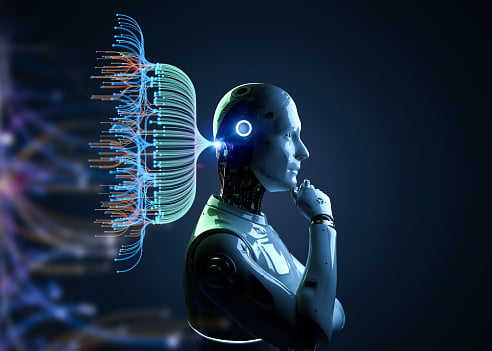Artificial Intelligence (AI) refers to the simulation of human intelligence in machines that are programmed to think and act like humans. AI enables machines to learn from data and experiences, allowing them to improve their performance over time. This powerful technology has the potential to revolutionize many industries, from healthcare to transportation to entertainment.
One of the key benefits of AI is its ability to automate routine tasks, allowing humans to focus on more complex and creative work. For example, AI can be used to analyze large amounts of data to identify patterns and trends, helping businesses make more informed decisions. AI can also be used to automate repetitive tasks, such as data entry or customer service inquiries, freeing up human workers to focus on more meaningful and impact work. As AI technology continues to evolve and improve, we can expect to see many more exciting applications of this powerful technology that will transform the way we live and work.
AI has numerous applications in daily life, some of which include:
- Personal Assistants: AI-powered virtual assistants like Siri, Alexa, and Google Assistant can help you schedule appointments, set reminders, answer questions, and perform various other tasks.
- Smart Homes: AI-powered home automation systems can control lighting, temperature, security, and entertainment systems in your home.
- Healthcare: AI-powered healthcare systems can help doctors diagnose diseases, predict patient outcomes, and develop treatment plans.
- Transportation: AI is used in self-driving cars to help them navigate roads and make decisions based on real-time data.
- Education: AI-powered tutoring systems can personalize learning experiences for students, adapting to their individual needs and learning styles.
- Finance: AI is used in fraud detection, credit scoring, and investment management to make more accurate predictions and reduce risk.
Artificial Intelligence (AI) has the potential to provide numerous benefits in the future.
One of the key benefits is improved efficiency and productivity, as AI can automate many routine tasks and allow humans to focus on more complex and creative work. AI can also provide personalized services and recommendations based on individual preferences and behavior, leading to a more satisfying user experience in many industries. Additionally, AI can improve healthcare outcomes by analyzing vast amounts of medical data and identifying patterns and correlations that humans might miss. AI can also enhance safety by detecting and responding to potential hazards, such as cyber threats or natural disasters. Finally, AI can help create a more sustainable future by improving energy efficiency, reducing waste, and better managing natural resources. As AI technology continues to evolve and mature, we can expect to see many more exciting and transformative applications of this powerful technology that will benefit society in countless ways.
The uses of Artificial Intelligence (AI) are widespread and diverse. AI has the potential to transform many industries, from healthcare to transportation to entertainment, by automating routine tasks, improving decision-making, and providing personalized services.
AI can analyze vast amounts of data to identify patterns and correlations that humans might miss, leading to more accurate and efficient outcomes. AI can also enhance safety and security by detecting and responding to potential hazards, as well as improving environmental sustainability by reducing waste and better managing natural resources. As AI technology continues to evolve and improve, we can expect to see even more exciting and transformative applications that will benefit society in countless ways.
However, it is also important to address the potential ethical and social implications of AI to ensure that its benefits are shared by all and that its use aligns with our values and principles.

